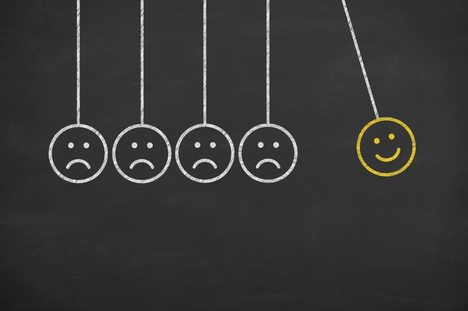|
SELF REGULATION AND EMOTIONAL DYSREGULATION What do they mean and how are they, well…Everything? Self- Regulation is a complex skill that allows you to manage your emotions, behaviour and body movement when you are experiencing a stressful situation. Dysregulation, also known as emotional dysregulation on the other hand, refers to difficulty in managing emotions like sadness, irritability, and anger, or an inability to respond to tough situations in expected ways. Dysregulation is a natural part of the human experience. We all can experience dysregulated behaviour, and even have difficulty coping with intense emotions. Typically, we recover fairly quickly and become reflective in hopes to respond in different ways next time. In the early years, a struggle with dysregulation is developmentally normal, and as children learn skills and strategies, these issues may resolve themselves ie: less temper tantrums and outbursts. Unfortunately, there may be more severe underlying issues (neurodevelopmental, environmental and genetics) and this may not always be the case. Some children, youth and adults continue to have heightened emotions that are too intense compared to the situation that triggered it. This means that the response is TOO big compared to the size of the problem, leading to impulsivity, poor decision making, volatility/aggression towards strangers or loved ones, a tendency to hold grudges, low frustration tolerance and blowing minor arguments out of proportion. Excessive worry, perfectionism, concentration problems and ‘burnout’ are also strongly connected. Without important intervention like therapy and possibly medication, individuals may experience explosive anger, anxiety, depression, substance abuse, self harm and other self-damaging behaviour like restrictive eating habits or binge eating. Emotional dysregulation is also a symptom of many psychiatric disorders as listed in the DSM -5 such as bipolar, borderline personality disorder and even post-traumatic stress disorder (PTSD). Now that we know what dysregulation is and how it can be related to many problems that interfere with quality of life, social interactions and relationships at home, work and school, it is important to understand some of the underlying causes of emotional dysregulation and how we can intervene to support better outcomes. How can we as caregivers teach children the skills needed to have more social, emotional and academic success? How can we feel more competent as a parent, be a more empathetic friend, and a more communicative and understanding partner? A strong therapeutic relationship can be integral to explore the underlying issues related to dysregulation and the therapists at Inner Oak Therapy are very well trained and experienced in some of these causes such as early childhood trauma, and Attention Deficit Hyperactivity Disorder ( ADHD) which is a neurodevelopmental disorder that impacts brain function and how it manages emotions and reactions. Whether you have a diagnosis of ADHD, social anxiety, depression or any other aforementioned disorders, have experienced a significant stressor ie: change or loss, such as the death of a loved one, separation or divorce, job loss/change, or you are feeling constantly on edge and are motivated to understand why, individual therapy can support this exploration of the many causes of dysregulation. Through cognitive behaviour therapy that combines strategies like mindfulness, acceptance and emotional regulation activities, your therapist can help you and/or your child identify thinking traps and what specific triggers cause stress, reduce extreme emotional reactions by developing emotional literacy ( the identification, understanding of feelings) develop positive self -talk and learn the ways to express feelings in ways that fosters self-esteem, relationships and growth. Ultimately, we become more able to tolerate uncomfortable feelings and therefore face tough and scary situations with patience, calmness and thoughtfulness. AuthorWritten by Kristin Henderson
0 Comments
Leave a Reply. |
Archives
March 2023
Categories
All
|
- Home
- Who We Serve
- About
-
Services
- Child Therapy Burlington Ontario
- Adolescent Counselling Burlington Ontario
- Burlington Adult Therapy
- Parent Therapy Burlington Ontario
- Burlington Family Counselling
- Burlington Individual Therapy
- Couples Therapy Burlington
- Mental Health Therapy Burlington
- Burlington Anxiety Therapy
- Depression Therapy Burlington Ontario
- Burlington PTSD Counselling
- Burlington ADHD Therapy Services
- Borderline Personality Disorder Therapy Burlington
- Milton Psychotherapy Services
- Child Therapy Milton Ontario
- Adult Therapy Milton ON
- Milton Family Counselling
- Couples Therapy Milton Ontario
- Mental Health Therapy Milton
- Walk and Talk Therapy
- EMDR Therapy
- Contact
- Book Now
- Blog


 RSS Feed
RSS Feed
